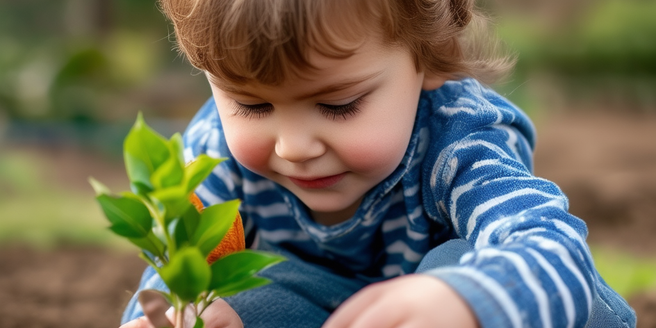
Understanding the Importance of Environmental Education
Environmental education is crucial for developing a generation that respects and protects the planet. By integrating these lessons early, children learn the value of sustainability, conservation, and the impacts of their actions on the environment. This foundational knowledge not only fosters responsible behavior but also encourages critical thinking and problem-solving. It is important to remember that understanding these concepts at an early age can shape future leaders who are passionate about the Earth’s wellbeing. Schools and parents can use interactive activities, nature outings, and discussions about current environmental issues to make the learning process engaging and relevant. A well-rounded environmental education cultivates a sense of stewardship and a lifelong commitment to preserving natural resources.
Fun and Engaging Ways to Teach Sustainability
Teaching sustainability can be both fun and engaging for kids through hands-on activities like gardening, recycling crafts, and nature scavenger hunts. These interactive methods provide practical experience while reinforcing the principles of sustainability. By involving children in these activities, they learn valuable skills and develop a deeper appreciation for the environment. Storybooks and educational games that focus on environmental themes also capture children’s imaginations and make learning enjoyable. Encouraging participation in community clean-up events can further instill a sense of responsibility and connect children with broader environmental efforts. Making sustainability relatable and enjoyable ensures that its principles stick with children as they grow.
Incorporating Eco-Friendly Practices at Home
Incorporating eco-friendly practices at home sets a powerful example for children. Simple actions such as reducing water usage, using energy-efficient appliances, and minimizing waste can significantly impact the environment. Parents can involve kids in activities like composting, growing a vegetable garden, or sorting recycling to teach them about sustainable living. Discussions about the benefits of these practices help children understand their importance and encourage them to adopt similar habits. Additionally, making eco-friendly choices as a family can lead to bonding and shared learning experiences. Creating a household culture of environmental consciousness ensures that children learn to value and protect natural resources.
Community Activities to Foster Environmental Awareness
Community activities are a fantastic way to foster environmental awareness among children. Participating in local clean-up events, tree planting drives, and conservation projects helps them understand the direct effects of environmental care. Additionally, these activities cultivate teamwork and leadership skills in young participants. These activities also provide opportunities to meet like-minded peers and mentors who can inspire further action. Schools and community organizations can collaborate to create programs that engage children in meaningful environmental efforts, making learning tangible and impactful. Such community involvement instills a sense of pride and responsibility for the local environment.
Teaching Kids About Wildlife Conservation
Teaching kids about wildlife conservation helps them appreciate the diversity of life on Earth and the importance of protecting it. Start by educating them about local wildlife and the roles these species play in the ecosystem. Visiting zoos, nature reserves, and wildlife rehabilitation centers can provide a hands-on learning experience. Sharing stories of endangered animals can make the lessons more relatable. Encourage children to support conservation efforts through activities like building birdhouses, planting native plants, or participating in citizen science projects. Understanding the challenges facing wildlife fosters empathy and motivates kids to advocate for animal protection.
Encouraging Kids to Reduce, Reuse, and Recycle
Encouraging kids to reduce, reuse, and recycle is fundamental to instilling eco-friendly habits. Teach children the importance of reducing waste by choosing reusable items over disposable ones. Craft projects using recyclable materials can make reusing fun and creative. These activities not only promote creativity but also provide valuable lessons on sustainability. Educate them on sorting recyclables and explain how recycling conserves resources and reduces landfill waste. School programs and family initiatives like recycling challenges can turn these practices into regular habits. By understanding the benefits and processes of the three Rs, children become proactive in minimizing their environmental footprint.
